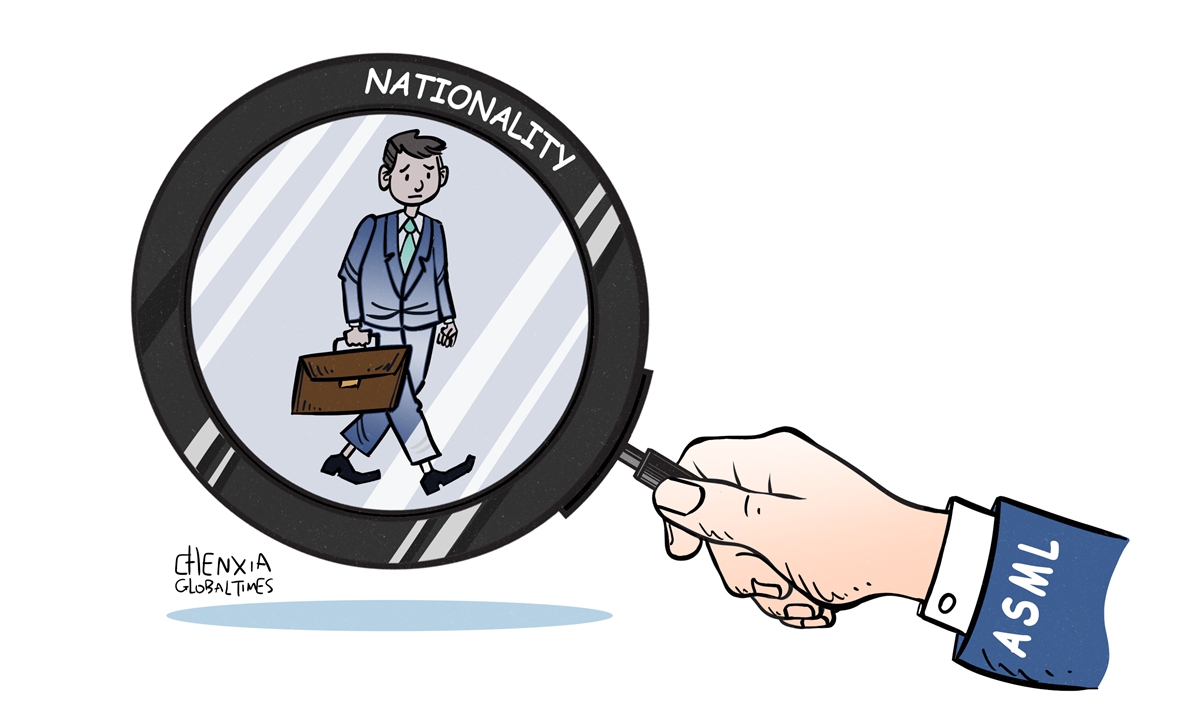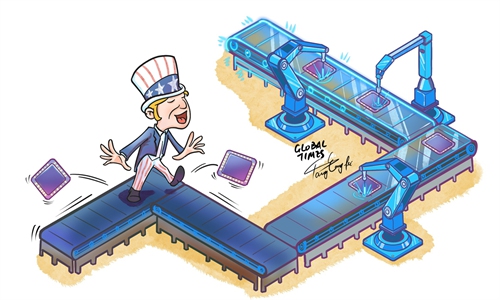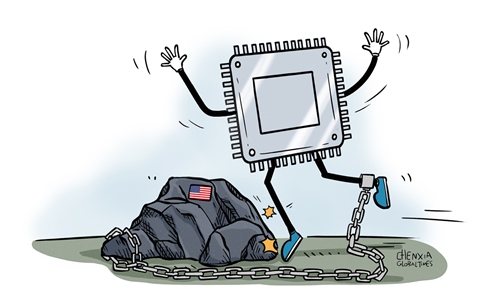
Illustration: Chen Xia/Global Times
Dutch chip equipment maker ASML' hiring practices have caused controversy by rejecting job applicants from certain countries. A Rotterdam-based anti-discrimination foundation had filed a complaint over ASML's practices, arguing that Dutch law does not permit discrimination on the basis of nationality, Reuters reported on Tuesday.A decision by the Netherlands' Institute for Human Rights, which oversees discrimination complaints in the Netherlands, affirmed that ASML may refuse job applicants on the basis of their nationality when required to do so by US export rules, saying that US Export Administration Regulations (EAR) doesn't originate from the Dutch legislator, but are indeed binding for ASML.
However, the decision cannot help quell public anger toward discrimination based on nationality. If Dutch human rights institution fails to properly address discrimination issues, it will become a stain on the West's human rights record under US pressure.
Washington's economic coercion is the root cause why ASML succumbed to discriminatory rules. The company had argued that violating US regulations would lead it to risk American sanctions. According to Reuters, a flow chart shows ASML routinely checks whether employees perform work that could be considered relevant for EAR rules. "If so, then the employee must have nationality or permanent residency in a country that does not fall into one of the US Commerce Department's D:1, E:1 or E:2 country groups," the report said, adding that those categories include Iran, Syria, North Korea and Cuba, and also about 20 other countries including China and Russia.
ASML has significant operations in the US, which has been used by politicians in Washington as a tool to exert pressure on the Dutch chip equipment maker. It is a typical example of US' use of economic coercion to seek selfish interests at the expense of human rights. The situation is quite ironic: On the one hand, politicians in Washington said the US is the "beacon of human rights," claiming that US laws prohibit discrimination based on a person's national origin, race, color, religion, disability, sex, and familial status. But on the other hand, the US, in order to maintain its economic hegemony, pile up pressure on high-tech companies to adopt discriminatory practices, otherwise, economic sanctions will be imposed.
Amid the US' ill-intentioned chip war, there have been growing restrictions from Washington on high-tech firms and global technological cooperation and exchanges. In this process, Washington has ignored rules, viewing global talent market through a geopolitical lens, abusing unilateral sanctions and disregarding its partners and allies for raw self-interest. Whichever country or region succumbs to US pressure or long-arm jurisdiction, it will basically end up being US cannon fodder.
For the foreseeable future, the US is likely to continue to increase its control over global talent and technology cooperation, which will undoubtedly further distort the global talent market and high-tech industry chain. Such US practice of human rights violations are set to backfire on its own economy. The US uses the so-called national security as a reason for suppressing global talent, it resulted - in some cases - in global researchers and academics being placed under house arrest or taken away in handcuffs on charges of "engaging in economic espionage." This has seriously affected the US' ability to attract top international research talent.
A tech war is ultimately about a talent war. A spirit of openness and mutually beneficial cooperation will help China win the talent war. Studies show that the best science is often done by international research teams. While the US is passionate about discrimination on the basis of nationality, China is definitely moving in the opposite direction by making great efforts to attract talent from around the world. China is trying to make itself the best place in the world to conduct scientific research and innovation.
China has overtaken the US as the world leader in both scientific research output and high impact studies, according to a report published by Japan's science and technology ministry in 2022. The spirit of openness will further accelerate China's pace of technological progress.
The author is a reporter with the Global Times. bizopinion@globaltimes.com.cn



